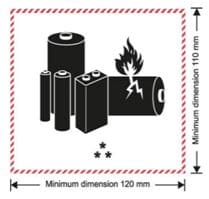SYDNEY, AUSTRALIA; WELLINGTON, NEW ZEALAND; AND LEXINGTON, KY—Independent hearing healthcare providers are feeling more than a little beleaguered these days, and who can blame them? Consider the following:
- Every few days, it seems, yet another story is published extolling a new online or over-the-counter device that, for just a few hundred dollars, gives users as much benefit—or nearly as much–as they can get from a $3000-$4000 hearing aid fitted by an audiologist or hearing aid specialist.
- The sale of low-priced hearing aids by “big box” stores is growing rapidly. Costco, the leader in this category, sold 355,000 hearing aids in the U.S. last year, about 11% of the total market. Currently four of the world’s “big six” manufacturers supply hearing aids to Costco, which sells them for prices ranging from $500 to $1500 apiece.
- More than one fifth of the U.S. hearing aid market gets free hearing aids and audiologic services from the VA, and the percentage increases nearly every year.
INTERNATIONAL ALLIANCE ANNOUNCED
To address these and other developments that they see as threats to the survival of independent practices, audiology organizations in three countries have formed a strategic alliance. The members of the alliance, which was announced May 1, are Independent Audiologists Australia (IAA), Independent Audiologists New Zealand (IANZ), and the American group, the Academy of Doctors of Audiology (ADA). The alliance will share resources, information, and best practices among their members.
Brian Taylor, AuD, played a lead role in bringing the three groups together. Taylor, who is director of professional development for Unitron (a member of the Sonova group) and editor of ADA’s quarterly publication, Audiology Practices, has traveled the world as a kind of unofficial global ambassador.
He was an invited presenter at a recent seminar in Melbourne, Australia, where members of the IAA and IANZ discussed the challenges and opportunities in independent audiology practice today.
TAYLOR SEES SHARED GOALS AND CHALLENGES
In an e-mail interview with this blog, Taylor said, “The primary strategic imperative of this alliance is to share ideas and tactics that boost the sustainability and success of independent, entrepreneurial audiologists.”
Taylor, a frequent contributor to HearingHealthMatters.org, said, “Regardless of the country, all parties recognize they share the same challenges: emergence of big-box retail’s mega-efficiency, direct-to-consumer devices, a shortage of audiologists, an aging group of audiologists that are business owners, and an aging population that embraces alternative therapeutic approaches.”
Taylor, who has more than 20 years of clinical, teaching, and business management experience in audiology, added, “By pooling the knowledge and experience of a broader coalition of audiologists, I hope we can arrive at some specific services that younger patients with mild hearing loss are willing to purchase and use.”
Brian Urban, AuD, president of ADA, expressed enthusiasm for the international initiative. He said, “We are thrilled to have the opportunity to exchange knowledge and ideas with like-minded colleagues from across the world.”
Taylor noted that a partnership with IAA and IANZ “is a natural fit for ADA, whose commitment to autonomous practice has helped shape audiology’s transformation into an independent doctoring profession in the United States.” But, he added, “Autonomy in practice doesn’t mean you want to go it alone. We all have much to learn from each other.”









Instead of worrying about how to market themselves better, if audiologists would be more concerned with helping their clients hear better than simply selling hearing aids they might not to have to worry as much about the competition. I had many years of hearing aid use before I independently discovered that personal FM systems would help me in situations in which hearing aids don’t help. If they would learn and teach their clients about aural rehabilitation, perhaps fewer hearing aids would wind up in the drawer. Doing everything possible to supplement hearing aids might lead to more repeat business. I can’t tell you how many people I’ve met who have given up on hearing aids because they aren’t enough.
Excellent news. Great work Brian!
Ms. Agate,
The vast majority of audiologists and hearing instrument specialists are more concerned about helping individuals overcome the barriers associated with hearing loss than “selling” hearing aids. For various reasons, some of which are out of their contril, they have allowed the traditional hearing instrument device to become the center of their universe.
The reality is that many of the assistive devices, like the one you mention are dependent on the patient wearing hearing aids. The big opportunity for consumers and hearing care professionals rests with our ability to engage the 75% of patients with hearing loss who do need or want traditional hearing aids. Our success in this area, in my opinion, does not revolve around a medical device. Rather, it depends on our ability to embrace myriad solutions, including motivational interviewing techniques , brain training, aural rehabiliation, “hearing apps”, relaxation training and yes, even over-the-counter hearing aids… to name a few . Given the nature of the entrepeneuer, they are the best equipped to bring these innovative ideas to market and find a way to scale them up to all hearing care practices. This can only occur through a larger network of like-minded professionals. Thus, the alliance of these three groups.